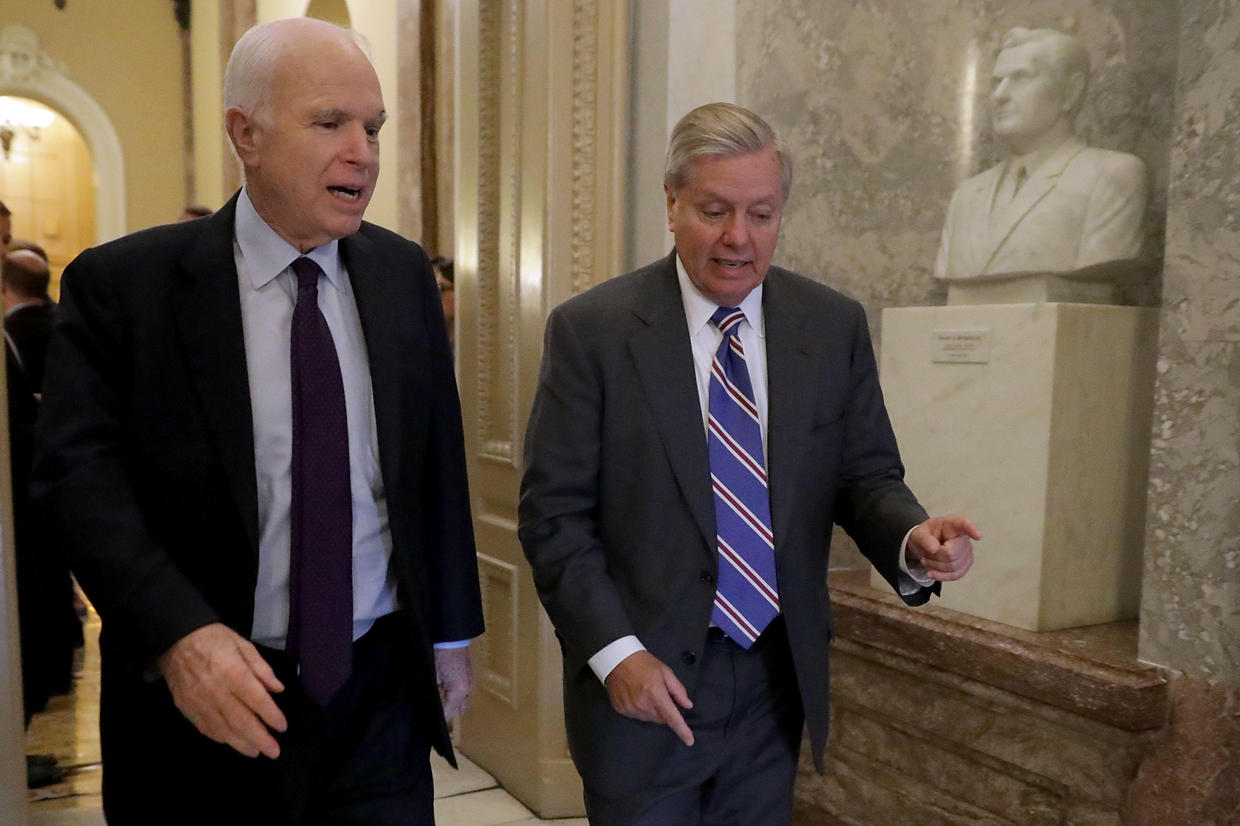Glioblastoma Awareness Day an important first step to earlier diagnosis and better support
July 17, 2019
The United States Congress officially recognized people fighting brain tumors with the first-ever Glioblastoma Awareness Day. After this disease took the lives of Senator Ted Kennedy of Massachusetts in 2009 and John McCain of Arizona in 2018, their colleagues and successors introduced a bill in their memory that named today, July 17, as Glioblastoma Awareness Day. Kyrsten Sinema and Martha McSally of Arizona, Elizabeth Warren of Massachusetts, and Sen. McCain’s best friend in the chamber, Lindsay Graham of South Carolina, sponsored the legislation.
While a growing number of people know somebody who has been affected by a brain tumor, the need for a broader understanding of what they face, paving the way to more research and greater hope, has never been more necessary. In this country, roughly 17,000 people each year are diagnosed with a primary brain tumor, and they face numerous barriers to good care and positive outcomes.
It is partly that lack of awareness about brain tumors that makes them so destructive. Brain tumors represent under 2% of all cancers, but because they strike indiscriminately of age and are often not detected until they are quite progressed, they cause the most life-years lost of any cancer, according to a 2005 article in the British Journal of Cancer.
Many patients see their primary care physicians, often more than once, while presenting early symptoms, and yet still don’t get diagnosed until they show more severe symptoms in an emergency or specialist setting. Their initial diagnosis, often of stress or anxiety, or some unrelated health condition, may cause months of delays before getting an accurate appraisal.
More awareness on the part of the public and general practitioners that worsening headaches, balance issues, and vision problems should be taken as a cue to investigate a possible tumor, could lead to more people getting an early diagnosis, having more time to evaluate their options for surgery and treatment options, and possibly being eligible for more trials.
What’s more, people frequently have or get so little information about brain tumors that their diagnosis is even more upsetting than it needs to be. Patients who are diagnosed by someone other than a neurologist or neurosurgeon may be discharged with little information about what they’re facing, what their next steps are, and who they need to get on their team.
One survey found that fewer than half of patients are made aware of treatment side effects, while fewer than 25% learn about support groups, charities, or financial support resources.
We’re encouraged that Congress has chosen to raise more awareness of glioblastoma. Awareness means that the public will know that people among them are fighting, which is a good development in and of itself. But more than that, awareness may mean that in the future, when people have undiagnosed or newly diagnosed brain tumors, we won’t leave so many of them to fend for themselves.
